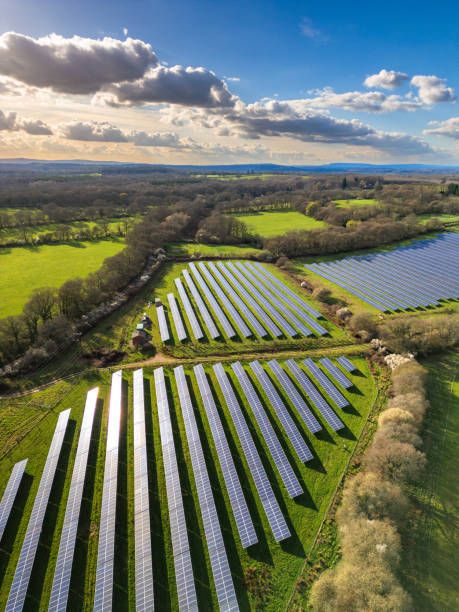In today's fast-paced world, electricity is more than a convenience—it's a necessity. From running homes and businesses to supporting hospitals and data centers, our modern lives depend on a constant flow of energy. But where does all this power come from? The answer lies in power plants—the backbone of the global energy system.
At Delta U Consulting, we help clients in Temple, TX, understand, plan, and implement energy systems that align with modern needs and sustainability goals. In this blog, we’ll explore what power plants are, how they work, the different types, and why they matter more now than ever.
What Is a Power Plant?
A power plant is an industrial facility that generates electricity from various energy sources. These plants convert natural resources like coal, gas, water, wind, sunlight, or nuclear material into usable electrical energy. The electricity is then transmitted through power lines to homes, businesses, and industries.
Power plants vary in size—from massive national grid facilities to smaller, localized operations—and play a vital role in maintaining stable electricity supply.
How Do Power Plants Work?
The basic function of a power plant is to convert energy from one form to another, specifically into electricity. Most traditional plants operate using the following steps:
Fuel Source: Energy sources like coal, natural gas, solar radiation, wind, or nuclear material.
Energy Conversion: Mechanical turbines or chemical processes convert this fuel into heat or motion.
Electric Generator: The motion spins a generator to create electricity.
Transmission: Electricity flows into the power grid and gets distributed where needed.
Each type of power plant uses a different method for conversion, which brings us to the next section.
Types of Power Plants
1. Thermal Power Plants
These plants burn fossil fuels like coal, oil, or natural gas to produce steam, which drives turbines and generates electricity. Though efficient, they emit greenhouse gases and are a major contributor to climate change.
2. Hydroelectric Power Plants
These use flowing or falling water to spin turbines. Hydropower is renewable, efficient, and cleaner than fossil fuels. Dams and rivers are common hydro sources.
3. Nuclear Power Plants
Using nuclear fission (splitting atoms), these plants produce significant energy without direct carbon emissions. However, they come with concerns around safety and radioactive waste.
4. Solar Power Plants
These harness sunlight using photovoltaic panels or solar thermal collectors. Solar power is clean, renewable, and increasingly popular in sunny areas like Temple, TX.
5. Wind Power Plants
Turbines powered by wind produce electricity without emissions. Wind farms are a major part of today’s shift toward clean energy.
The Role of Power Plants in a Sustainable Future
As climate concerns grow and fossil fuel prices rise, there’s a global shift toward clean energy solutions. Power plants are evolving—integrating renewable sources, using smarter grids, and reducing waste and emissions.
At Delta U Consulting, we help local businesses, utility companies, and municipalities in Temple, TX, transition toward more efficient and sustainable energy solutions. Whether it's evaluating solar plant potential or integrating smart energy storage systems, our goal is to build the energy infrastructure of tomorrow.
Power Plant Design & Consulting Services in Temple, TX
Planning a power plant, whether large or small, involves complex technical, environmental, and financial factors. Our experts at Delta U Consulting offer:
Feasibility studies
Site and resource
Environmntal impact evaluations
Engineering and design support
Renewable integration strategies
Regulatory compliance guidance
Whether you’re investing in renewable energy or upgrading traditional systems, we bring a deep understanding of both emerging technology and regulatory requirements in Texas.
Who Benefits from Power Plant Projects?
Power generation infrastructure isn’t limited to large-scale utilities. Many industries and government agencies can benefit from custom energy solutions, including:
Manufacturing facilities
Hospitals and universities
Municipal water treatment plants
Military installations
Data centers
Agricultural operations
In Temple, TX, there's growing interest in local, sustainable energy that can power these operations more reliably and affordably.
Challenges and Innovations in Power Generation
Some of the key challenges in today’s energy landscape include:
Rising fuel costs
Aging grid infrastructure
Environmental concerns
Demand fluctuations
To overcome these, modern power plants are integrating AI-driven analytics, energy storage systems, carbon capture technologies, and microgrid architectures. These upgrades ensure reliability, efficiency, and sustainability.
FAQs about Power Plants
1. What is the most commonly used type of power plant in Texas?
Natural gas-fired power plants are the most common in Texas due to local resource availability and cost efficiency.
2. How long does it take to build a power plant?
It depends on the type. A small solar plant may take months, while a nuclear facility can take several years to complete.
3. Are renewable energy power plants expensive to maintain?
Not typically. Solar and wind plants have low maintenance costs compared to fossil fuel-based systems due to fewer moving parts.
4. Can businesses in Temple, TX, invest in their own power generation?
Absolutely. Many local businesses are exploring solar, wind, or hybrid systems to reduce utility costs and enhance energy independence.
5. Why choose Delta U Consulting for power projects?
We bring years of technical expertise, local knowledge, and a commitment to sustainable design, making us the trusted partner for power plant consulting in Temple, TX.
